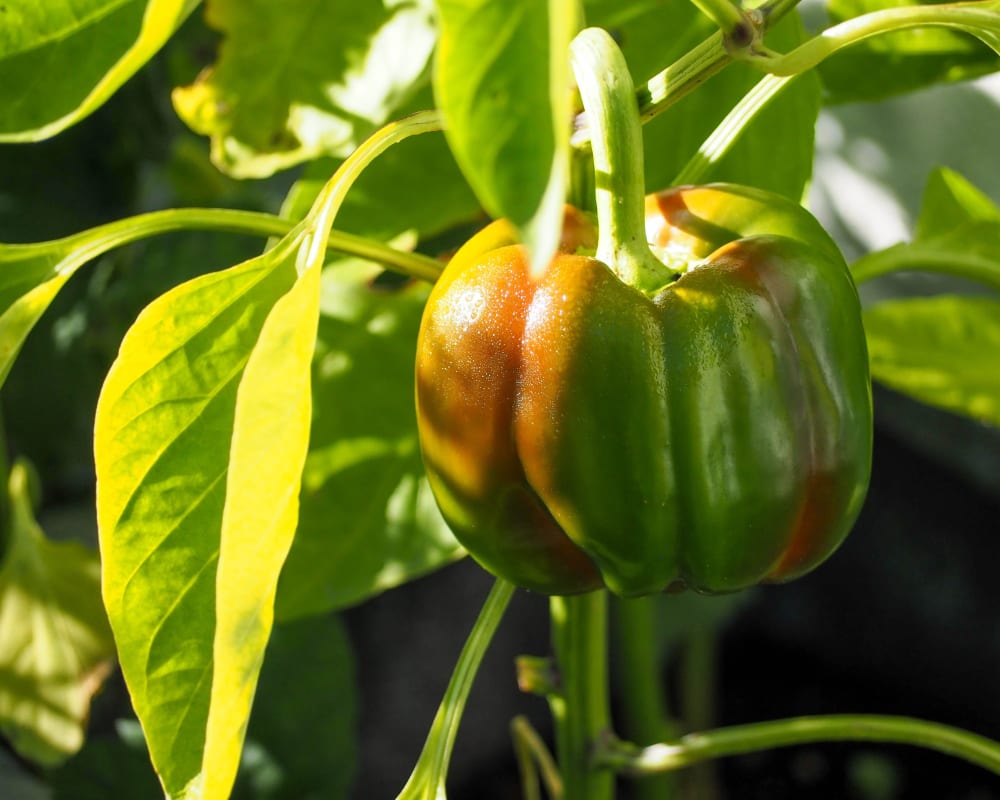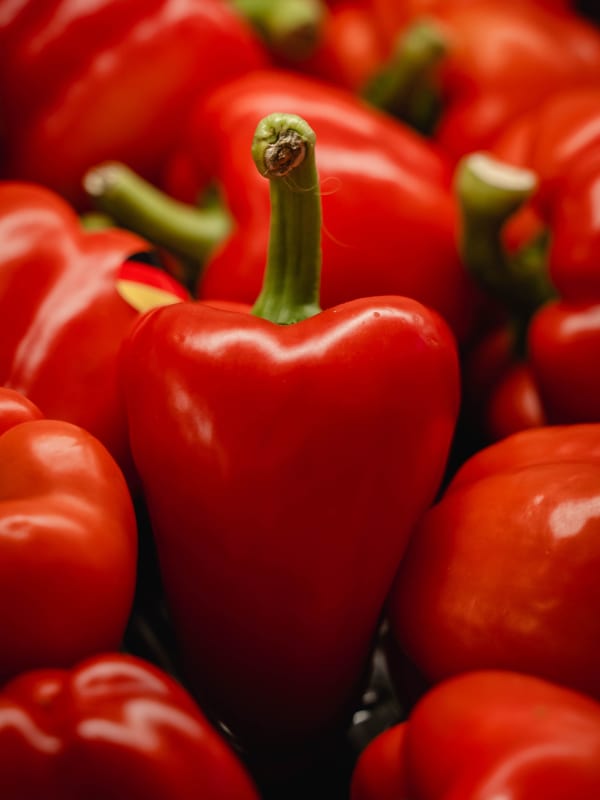Popular Conditions & Diets

Make no mistake, there is but one sweet member of the capsicum family of flowering plants: the only difference between a green pepper and a yellow, orange, or red one is ripeness.
Technically a fruit, the bell pepper originated in South America and was spread worldwide by Portuguese and Spanish explorers. And while these sweet, colourful bell peppers are incredibly close to their spicy cousins genetically, they are totally unrelated to black pepper.

As bell peppers ripen and eventually turn red, they become sweeter and lose the bitter earthiness characteristic of green peppers. But the increased concentration of natural sugars isn’t the only thing separating red peppers from their less mature counterparts.
Green peppers will stay fresh longer than yellow or red due to being less mature when picked. Store them in a bag in the fridge for up to a week.
Vitamin C, also known as ascorbic acid, is very sensitive to heat and will become denatured at 30 degrees Celsius. So eating bell peppers raw is the best way to preserve their crunch and vitamin content. Since cooking breaks down the plant fibres, it will predigest bell peppers and make them easier to digest. As a bonus, it will also bring even more of their sweetness to the fore.

Like a brand-new fire engine, the dazzling, vivid hue hints at the explosion of potent micronutrients that red peppers contain. Not only do they boast as much as 11 times the beta carotene of green peppers, but they are bursting with other powerful carotenoids as well.
Some of these are strongly associated with eye health, such as lutein and zeaxanthin, which prevent macular degeneration, keeping our vision sharp into old age.
Along with a minimal group, including tomatoes and watermelons, red bell peppers are a precious source of another carotenoid called lycopene. Just like lutein and zeaxanthin prevent free radical damage to our eyes, lycopene and vitamin C are profoundly cardioprotective, preventing oxidative stress from degrading our arteries. And red peppers contain four times more vitamin C than an orange!